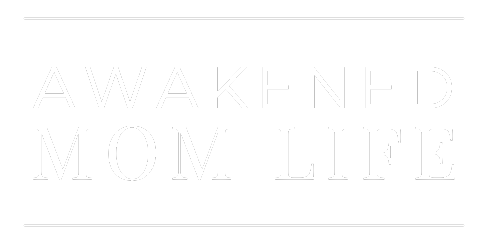Emotional trauma is like an invisible thread that weaves its way through our lives, leaving a profound impact because the body keeps the score. These experiences can cast long shadows, affecting not only our minds but also our physical health. In this blog post, we’ll embark on a journey to explore the intricate relationship between emotional trauma and the human body.
In this blog, we’ll explore the fascinating connection between our brains and bodies and why it’s crucial for our overall well-being.
We’ll also discuss why mainstream medicine, particularly Western medicine, often overlooks this important link, especially when it comes to trauma survivors. We’ll draw insights from the book “The Body Keeps the Score” by Dr. Bessel van der Kolk, which sheds light on how trauma affects our brain-body connection.
Emotional trauma can have a long-lasting impact on our bodies, as “the body keeps the score” of past experiences. This intricate connection involves our brains releasing stress hormones in response to trauma.
While this stress response is meant to prepare us for immediate action, experiencing it frequently can disrupt our body’s balance, leading to various health challenges over time. Understanding this connection is key to addressing the lasting effects of emotional trauma and promoting healing in both mind and body.
Want to jump to a specific section?
How does childhood trauma lead to emotional trauma?
Does all trauma lead to emotional trauma?
Why does emotional trauma affect the body? Why is it that the body keeps the score?
How does emotional trauma affect my physical health?
Trauma and Your Stress Response and Hormones
Trauma and Impact on Gut Health
Trauma and your Immune System Function
Trauma and Chronic Pain and Tension
Trauma and Sleep Problems
Trauma and Your Cardiovascular Health
How Can I Overcome the Effects of Emotional Trauma if the Body Keeps the Score?
How do I reconnect to my body to heal from trauma?
How do I Release the Biological Imprint of Trauma?
How can I Reprogram my Thought Patterns?
Important Note on the book “The Body Keeps the Score”
Research on Trauma and the Body
How does childhood trauma lead to emotional trauma?
First, emotional trauma is a psychological and emotional response to a distressing event or series of events that have a lasting impact on you. These events can include experiences such as accidents, abuse, neglect, loss of a loved one, or any situation that overwhelms your ability to cope. Emotional trauma can lead to a range of psychological, emotional, and physical symptoms, including anxiety, depression, chronic pain, chronic fatigue, flashbacks, nightmares, and difficulties in managing emotions and relationships.

Childhood trauma, also known as Complex Trauma (PTSD), is a specific form of emotional trauma that occurs during a person’s formative years, typically before age 18. It often involves experiences of abuse, neglect, or exposure to highly distressing situations during childhood.
Childhood trauma is particularly significant because it can have long-lasting effects on a person’s emotional, psychological, and physical well-being. It can impact how you perceive yourself, others, and the world around you.
Does all trauma lead to emotional trauma?
Not all trauma leads to emotional trauma; it can manifest in various forms, such as physical, emotional, or psychological, with the impact varying widely from person to person. Some people can experience a traumatic event without long-term emotional effects, while for others, the same event can profoundly affect their emotions and mental well-being, as “the body keeps the score” in its unique way for each person.
Many things determine how trauma affects people emotionally. The first is resilience. Some people naturally bounce back from tough situations, which can help prevent long-lasting emotional pain. Secondly, having a strong support system from family and friends makes a big difference. Having people to talk to and rely on can make coping easier.
Past experiences with trauma also shape how we handle new tough events. These past experiences can either make us stronger or more vulnerable emotionally. The type and severity of the trauma also matter; smaller incidents might not hurt as much as bigger ones. Lastly, how we cope with stress and trauma matters a lot. Doing healthy things like talking to a therapist or relaxing can help us deal better with emotional pain.
Remember, everyone reacts differently to trauma, and there’s no “right” or “wrong” way to feel afterward.
Why does emotional trauma affect the body? Why is it that the body keeps the score?
Emotional trauma affects the body because our minds and bodies are deeply connected. When we experience something traumatic, our bodies respond just as much as our minds do. This connection is why people often say, “the body keeps the score.”
When we face trauma, our bodies go into a “fight or flight” mode; our brain reacts and begins releasing stress hormones like adrenaline and cortisol. If this stress response stays active for too long, it can cause physical problems like headaches, stomach issues, or even heart problems. Our bodies can also hold onto memories of trauma, leading to strong physical reactions to certain triggers, like a racing heart or sweating.

Emotional trauma can cause us to hold tension in our muscles, which can lead to chronic pain such as backaches or neck pain. It can also affect our ability to sleep well, leading to poor sleep, a weakened immune system, and other health issues.
Additionally, stress and anxiety from trauma can disrupt digestion, causing problems like stomachaches, constipation, or diarrhea.
The body keeps the score because it remembers the trauma and tries to protect us from future harm. This survival mechanism can sometimes cause ongoing physical issues. Understanding this connection between the mind and body can help us find better ways to heal from trauma.
One of the key facets of the science of trauma is understanding the profound connection between our minds and bodies.
Kristina Bentle
How does emotional trauma affect my physical health?
Trauma isn’t something that just stays in the past; it lingers as an energy echo trapped in your body, as “the body keeps the score” of past experiences. Emotional trauma can affect your physical health in many ways. When you go through trauma, your body’s stress response system gets activated. This can impact different areas of your health, such as your immune system, digestion, and even your heart health.
For example, ongoing emotional stress from trauma can weaken your immune system, making you more vulnerable to illnesses. It can also disrupt your digestive system, leading to issues like stomach pain or irritable bowel syndrome (IBS).
Additionally, the constant activation of your body’s stress response can put a strain on your heart, increasing your risk of cardiovascular problems over time.

Understanding how “the body keeps the score” and stores trauma energy can help us see the connection between emotional trauma and physical health, and just as important, it gives us a roadmap to healing.
Trauma triggers a persistent stress response that creates a chain reaction within our bodies.
Kristina Bentle
Trauma and Your Stress Response and Hormones
When you go through trauma, your body enters a “fight or flight” mode. This response releases stress hormones like adrenaline and cortisol. While these hormones are helpful in short-term stressful situations, if they stay elevated for too long, they can cause various health problems. Chronic stress keeps your body in a constant state of high alert, which can wear down your physical health over time.
Trauma and Impact on Gut Health
One of the areas most affected by emotional trauma is your gut health. The gut and brain are closely connected through the gut-brain axis. When you’re stressed or anxious, it can disrupt the normal function of your digestive system. This can lead to issues like:
Stomachaches: Persistent stress can cause stomach discomfort and pain.
Digestive Problems: Conditions such as irritable bowel syndrome (IBS) can be aggravated or even triggered by emotional trauma.
Changes in Gut Flora: Stress can alter the balance of bacteria in your gut, leading to digestive issues and affecting overall health.
Trauma and your Immune System Function
Emotional trauma can weaken your immune system, making you more susceptible to illnesses. Chronic stress from trauma keeps your immune system constantly activated, which can lead to:
Increased Inflammation: Prolonged stress can cause chronic inflammation, which is linked to various health conditions, including heart disease and autoimmune disorders.
Reduced Immunity: Your body’s ability to fight off infections can be compromised, leading to more frequent colds and other illnesses.
Trauma and Chronic Pain and Tension
Emotional trauma often leads to physical tension, which can cause chronic pain. This tension is usually felt in the muscles and can manifest as:
Back Pain: Stress can cause you to hold tension in your back, leading to persistent pain.
Neck and Shoulder Pain: Many people store stress in their neck and shoulders, resulting in stiffness and discomfort.
Trauma and Sleep Problems
Trauma can severely impact your sleep patterns. You might find it hard to fall asleep or stay asleep, leading to:
Insomnia: Difficulty sleeping can become a chronic issue, further exacerbating stress and anxiety.
Poor Sleep Quality: Even if you do sleep, the quality of your sleep might be poor, leaving you feeling tired and unrested.
Trauma and Your Cardiovascular Health
Prolonged stress from emotional trauma can also affect your heart and blood vessels, leading to:
High Blood Pressure: Chronic stress can cause your blood pressure to stay elevated.
Heart Disease: Long-term stress is a risk factor for developing heart conditions.
How Can I Overcome the Effects of Emotional Trauma if the Body Keeps the Score?
Overcoming the effects of emotional trauma can be challenging, but it is possible with the right approach. One important concept to understand is that “the body keeps the score.” This means that your body remembers traumatic experiences, even if you don’t think about them consciously.
This idea comes from the book “The Body Keeps the Score” by Dr. Bessel van der Kolk, which emphasizes the importance of addressing both the mind and body in healing from trauma.
Healing from childhood trauma and developmental trauma doesn’t have to be a long, drawn-out process. But you do have to listen to your body; it won’t let you go any faster than it’s able.
Healing has to happen on three levels: physiological, biological, and cognitive.
- Reconnect to your body
- Release the biological imprint of trauma
- Reprogram your thought patterns
How do I reconnect to my body to heal from trauma?
Trauma often leads to a disconnection between the mind and the body, with individuals sometimes feeling like mere spectators to their own experiences. By focusing on mindfulness and practices that foster self-awareness, you can begin to rebuild this connection. Simple techniques like deep breathing exercises, yoga, or grounding exercises can help you become more attuned to the physical sensations in your body, which is a significant step toward healing.
Exploring Somatic Therapy
Somatic therapy emphasizes the connection between the mind and body in healing trauma. It recognizes that traumatic experiences can manifest in physical sensations and patterns of tension. Somatic techniques aim to help individuals become more aware of these sensations and release stored tension. Techniques such as deep breathing, progressive muscle relaxation, and body scanning can be effective in calming the nervous system and reducing the impact of trauma on the body.
How do I Release the Biological Imprint of Trauma?
As you know, healing isn’t just about addressing the emotional scars of trauma; it also involves dealing with its biological imprint. Releasing the biological imprint of trauma involves several key steps that can help ease the effects of trauma on both your mind and body. Remember, one important concept to understand is “the body keeps the score,” which means that trauma is stored in our bodies and can impact us physically and emotionally.
Reducing Toxic Burden
Reducing your exposure to toxic substances, whether they are environmental toxins or toxic relationships, can support your overall well-being. Toxic stress can exacerbate the effects of trauma, so creating a safe and healthy environment is important. This includes eating nutritious foods, avoiding harmful substances like drugs and alcohol, and surrounding yourself with supportive and positive influences. (Want a step-by-step guide to reducing your toxic burden?
Harnessing Neuroplasticity
Neuroplasticity refers to the brain’s ability to reorganize itself by forming new neural connections throughout life. Engaging in activities that promote neuroplasticity, such as mindfulness practices, meditation, yoga, and cognitive-behavioral therapy, can help rewire your brain’s response to trauma.
As you re-wire your brain, you directly impact your biology. These practices can enhance resilience, promote emotional regulation, and reduce the impact of past trauma on your present life.
Managing Cortisol Levels
Cortisol is a stress hormone that plays a role in the body’s fight-or-flight response. Chronic stress and trauma can lead to elevated cortisol levels, which can have negative effects on your health. Finding healthy ways to manage stress, such as regular exercise, deep breathing techniques, and relaxation exercises, can help regulate cortisol levels and promote a sense of calm and balance.
How can I Reprogram my Thought Patterns?
Reprogramming your thought patterns when you have trauma can be more challenging. This is why it’s important to understand how to work with your conscious mind to influence your subconscious.

Working with the conscious mind to influence the subconscious involves a technique I call the “pattern interrupt.” This approach recognizes that our subconscious mind drives many of our thoughts and behaviors based on past experiences and beliefs. So, trying to force changes solely through the subconscious can feel like swimming upstream against strong currents.
When we learn how to use the 20% of our conscious mind’s capacity to create change in the subconscious, we can introduce intentional thoughts, actions, and habits that gradually reshape subconscious patterns.
Understanding how “the body keeps the score” and incorporating insights from the science of trauma healing can enhance this process. By addressing both conscious and subconscious layers, we can achieve more effective and lasting healing outcomes.
Working with a Trauma-Informed Therapist
It’s important to understand that not all therapists are trauma-informed. Seeking support from a therapist who specializes in trauma can be incredibly beneficial. (I spent 15 years in CBT therapy, and I felt stuck; it can actually be counterproductive for trauma survivors).
A trauma-informed therapist understands the complexities of childhood trauma and can provide a safe space for exploration and healing. They may use a combination of talk therapy, somatic techniques, and other evidence-based approaches to help you process your experiences and develop healthy coping strategies.
Positive Neuro Affirmations
Affirmations often don’t work as well as we hope because they don’t take into account our emotions and deep-seated beliefs. They can feel like empty words that don’t really change how we think or feel. That’s why I’m introducing a new approach called Neuro Affirmations. This method focuses on including feelings, realistic beliefs, and how our brains can change (neural plasticity). It’s about creating affirmations that truly connect with our minds and emotions, making them more powerful for real change.
- Identify Your Goal: Start by clarifying what you want to affirm or change in your life. Whether it’s boosting self-confidence, overcoming fears, or fostering self-love, having a clear goal helps you tailor affirmations to your specific needs.
- Choose Affirmations Wisely: Select affirmations that feel realistic and aligned with your current beliefs. Avoid overly ambitious or far-fetched affirmations that may trigger cognitive dissonance and skepticism. For example, instead of saying “I am always confident in every situation,” try “I am growing in confidence each day.”
- Focus on Emotions: Incorporate emotions into your affirmations to make them more impactful. Use words that evoke positive feelings and sensations, such as “joy,” “gratitude,” “peace,” or “excitement.” For instance, “I feel grateful for the progress I am making” or “I am excited about the possibilities that lie ahead.”
- Visualize and Feel: When repeating your affirmations, visualize yourself embodying the qualities or outcomes you desire. Imagine the emotions and sensations associated with achieving your goals. This visualization enhances the neural pathways associated with your affirmations, making them more effective.
- Repeat Consistently: Consistency is key to reprogramming your subconscious mind. Repeat your Neuro Affirmations regularly, ideally multiple times a day. You can say them aloud, write them down, or create visual reminders, such as sticky notes or digital affirmations on your phone.
- Believe and Act: Engage in behaviors and actions that align with your affirmations. Believing in the possibility of change and taking small steps toward your goals reinforces the power of your affirmations. Celebrate progress, no matter how small, and adjust your affirmations as needed based on your evolving experiences and beliefs.
Challenge Negative Thoughts
Identify negative thought patterns, such as self-criticism or catastrophizing, and challenge them with evidence-based reasoning. Ask yourself if there’s another way to interpret the situation or if your thoughts are based on facts or assumptions. Replace negative thoughts with more realistic and compassionate ones.
Practice Mindfulness
Mindfulness involves paying attention to the present moment without judgment. It can help you become more aware of your thoughts and feelings, allowing you to observe them without getting caught up in negative patterns. Regular mindfulness practice, such as meditation or mindful breathing, can help you cultivate a more balanced and positive mindset.
Surround Yourself with Positivity
Surround yourself with supportive and positive influences. Spend time with people who uplift and encourage you, engage in activities that bring you joy and fulfillment, and create a nurturing environment that supports your well-being.
You can’t just jump into challenging thought patterns; your brain and body aren’t ready.
It’s crucial to acknowledge that challenging thought patterns requires a thoughtful and gradual approach. Our brains and bodies need time to process and adapt to new ways of thinking. The concept of “the body keeps the score” reminds us that past experiences, especially traumatic ones, can deeply impact our mental and physical well-being. Rushing into challenging thought patterns without proper preparation can be overwhelming and may even re-traumatize us.
Challenging thought patterns isn’t just about mental effort; it’s deeply rooted in the science of how our brains and bodies work together. Here’s a closer look at the science behind why we can’t simply jump into challenging thought patterns:
Neuroplasticity and Adaptation
Our brains have a remarkable ability to change and adapt, known as neuroplasticity. When we encounter new experiences or ideas, our brain cells form new connections and pathways. However, this process takes time and repetition. Trying to challenge deeply ingrained thought patterns without allowing for this neural adaptation can be overwhelming and ineffective.
Emotional Regulation and Stress Response
Emotions play a significant role in how we process and respond to thoughts. When we attempt to challenge thought patterns that are tied to strong emotions, such as fear or trauma, our stress response system can become activated. This can lead to heightened anxiety, making it difficult to approach challenging thoughts in a constructive way.
The Role of the Subconscious Mind
Much of our thought patterns and beliefs reside in the subconscious mind. These subconscious beliefs are often formed early in life and can be deeply ingrained. Did you know that an estimated 95% of your behavior is determined by your subconscious?! This is exactly why you can’t think your way out of trauma, you only get to control 5% of your mind.
Simply attempting to challenge your thoughts without addressing the underlying subconscious programming is like trying to swim against a strong current.
Understanding the science behind challenging thought patterns underscores the importance of approaching them with patience, mindfulness, and support. By honoring the natural processes of our brains and bodies, we can create a pathway for meaningful healing and transformation.
The body keeps the score; understanding this can open doors to healing and new possibilities.
In wrapping up, it’s essential to recognize that the body keeps the score on our journey of healing from trauma and challenging thought patterns. This concept underscores how our bodies remember past experiences, especially those that were distressing or traumatic, and how they can influence our present mental and physical well-being. Acknowledging this connection between our mind and body is crucial as we navigate the process of healing and transformation.
Neuroplasticity, the brain’s ability to reorganize itself and form new neural connections, offers hope for reshaping thought patterns and beliefs. However, it’s important to approach this process with patience and understanding.
Change takes time, and repetition is key to reinforcing new pathways in the brain. By practicing self-compassion and mindfulness and seeking support from therapists or mental health professionals, we can create a supportive environment for neural adaptation and growth.
Emotions are like a compass in navigating challenging thought patterns.
When strong emotions are linked to certain thoughts, it can set off stress responses in our bodies, as “the body keeps the score” of these emotional triggers. This can make it hard to deal with these thoughts in a constructive way.
To create lasting change, gradual exposure is key. Slowly facing these challenging thoughts helps our brains and bodies adapt, reducing the intensity of our emotional responses over time.
Additionally, addressing the underlying subconscious beliefs that fuel these emotions is crucial. By uncovering and understanding these beliefs, we can begin to challenge and reshape them, paving the way for positive change.
Finding the right balance is important. Pushing ourselves to grow and challenge thought patterns is essential for progress, but we must also honor our emotional needs throughout the process.
This means being patient with ourselves, practicing self-compassion, and seeking support when needed. By acknowledging and working with our emotions, we can navigate challenging thought patterns more effectively and create meaningful change in our lives.

Important Note on the book “The Body Keeps the Score” by Bessel van der Kolk
This blog aims to offer a trauma-informed approach inspired by the principles discussed in “The Body Keeps the Score.” However, it’s important to note that I don’t usually recommend the book to trauma survivors. Why? Because it can be highly triggering due to its detailed exploration of trauma and its focus on medical terminology.
The book is primarily written for medical professionals rather than trauma survivors, and diving into its content can inadvertently activate traumatic responses, which is what the book is teaching us to stop doing! It’s crucial to prioritize your emotional well-being and seek resources that are specifically designed to support trauma survivors without causing distress.
If you prefer to read the book and feel confident in handling the content, you can find “The Body Keeps the Score” here on Amazon.
Research on Trauma and the Body
Additional research and resources can be found in the research section on this website, including peer-reviewed studies on the impact of trauma on the brain and body.














